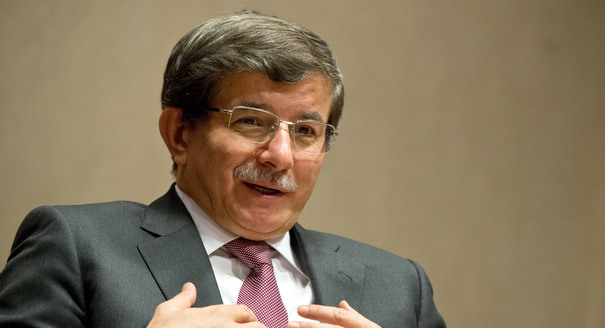Turkish Foreign Minister Ahmet Davutoğlu goes on his first visit to Armenia on Thursday. He will attend a meeting of the foreign ministers of the Organization of the Black Sea Economic Cooperation (BSEC).
In the past, BSEC was a good forum for the two countries, which have no diplomatic relations and a closed border, to talk to each other, with the Armenian ambassador to the Istanbul-based organization serving as an informal envoy to Turkey.
More recently, even that channel has not worked. Since the failure of the Zurich protocols in October 2009, official contacts have been at their lowest since Armenia gained independence in 1991. The two foreign ministers, Davutoğlu and Eduard Nalbandian, signed the Protocols but they were never ratified by the two parliaments, with the blame for the failure generally placed more on the Turkish than the Armenian side.
It is an awkward case of "damned if he does, damned if he doesn't" for Davutoğlu. If he had turned down the opportunity to attend the meeting in Yerevan he would have been seen to be snubbing the Armenians. (His predecessor Ali Babacan visited Yerevan for a similar meeting in April 2009, but those were much more auspicious times for bilateral relations).
Now that he is coming, Davutoğlu is being greeted with scorn by the Armenian media and certain Armenian officials. The pugnacious Deputy Foreign Minister Sharvarsh Kocharyan made it clear that Davutoğlu was not welcome in Yerevan, reiterating his government's position on Armenian-Turkish normalization. “Turkey can contribute to the normalization of relations with Armenia by ratifying and putting into practice, without any preconditions, the Turkish-Armenian Protocols signed in Zurich in 2009,” Kocharyan said.
Davutoğlu will not win himself friends in Yerevan if he floats the ideas on Nagorny Karabakh he reportedly discussed in Washington last month. That would break the Armenian taboo, supported by Washington and Moscow, which is based on the notion that the Karabakh peace process and the bilateral Armenian-Turkish process must be de-linked.
That knot cannot be untangled quickly. Azerbaijan has basically asserted its veto rights over the Turks making a bilateral deal with Yerevan without at least some progress on the Karabakh conflict.
But there are plenty of smaller but important issues that the two governments need to talk about, from business relations to the status of Armenian cultural monuments in Turkey to consular services for Armenians visiting Turkey. The Armenians can use Davutoğlu's visit to vent some of their frustrations with Turkey—and then get back to talking again.





